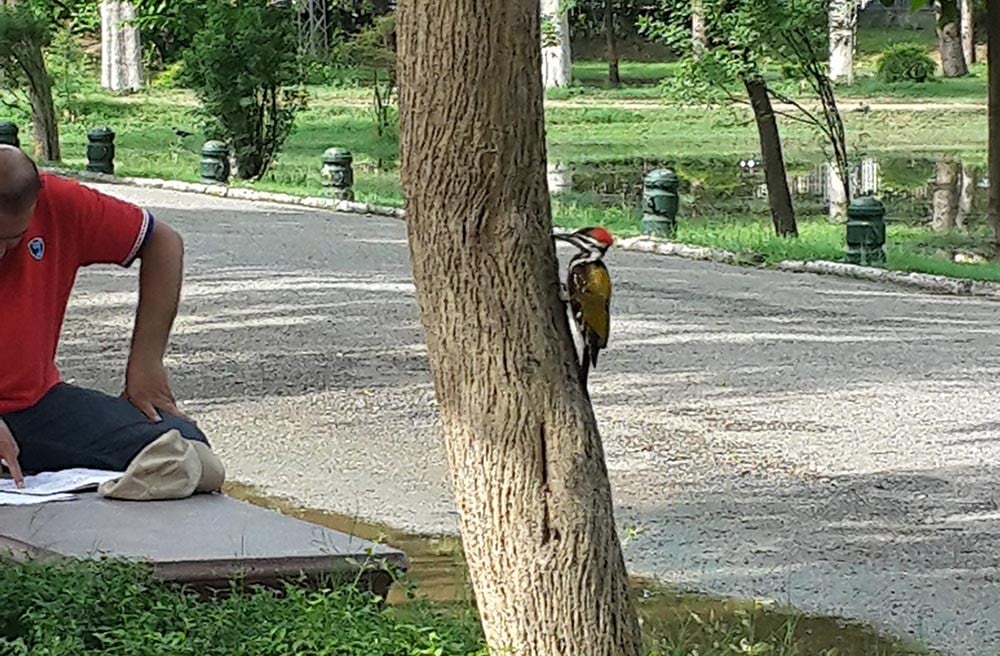
Reading a paper through our mind’s eye

Nothing compares to a walk in the park, preferably solitary. Doing it in the morning is even better. It gives you a rare chance to reflect in a way you can’t do again for the rest of the day.
If the morning walk is slightly delayed and you reach the park by about 8am, the attendance on the jogging track is usually thinned out. Instead, a whole brigade of maalis has taken charge. You can spot them here and there, working in groups and alone, mowing grass, pruning stems and vines, planting new flowers, watering the plots. They leave you wondering about the unwritten directives that bring them to work here, no matter what.
It could be extremely hot, humid or dull but there they are, holding their machines and tools and brooms that keep them busy at work. There is no apparent hierarchy in place. There must be a similarly-dressed in-charge of sorts among them but he is hard to identify.
Each time I see these young and old (some of them seem way past their retirement age) gardeners maintaining the park in this manner, I think whether that makes a newspaper story. What if they all disappear for a day or many days? Would we want to go to a littered unkempt park?
Would a journalism obsessed with news want to carry a positive story about how all the lower staff turns up regularly in a park and does its duty. I seriously doubt it.
Journalism today is all about something out of the ordinary. It’s about stories of corruption, rape, murder, theft, epidemic, scandal of some sort. Terrorism has been big news for quite some time in our part, provided each new attack is more lethal than the last and involves a different methodology and locale.
None of it, the newsmakers claim, is cooked up. All of it is based on facts. We who are in the same business think they are not too wrong when they say this. All of what forms a day’s news is indeed based on events that have actually happened. Except that at the end of the day it’s just one part of our lived lives.
The news media leaves out the ordinary lives and much of what is picked up is something that, in the words of Alain De Botton, induces fear and anger. It makes us excessively scared each time we step out of our houses and disproportionately angry about the scheme of things, institutions -- all politicians are corrupt; all cities are lawless; we could be killed any time by a brain-eating amoeba if spared by the suicide bomber.
Now that’s a little unfair. That’s not what life is all about.
A proud mother walking beside her children on their way to school, a sunny hot summer day leading to rain in a matter of minutes, a couple sharing a laughter, a dust-storm making the birds float in sky, a woodpecker perched on a tree, clouds playing a game of shapes with the moon, a favourite song being played on the radio, an old woman being helped by a policeman to cross the road. These too are facts that will never be picked as news. Why, because they don’t fit the ‘definition’.
Fine. But what would these constant negative news do to us as a people? Where, in the words of Botton again, are stories of hope and dignity and resilience? Those too are a part of reality and, perhaps, a significantly larger part. You go to a government hospital any day and you would see hundreds and thousands of patients queued up and cured by the most competent doctors the country has to offer. Not perfect but at least they’re trying.
People at large are struggling with their everyday lives without engaging in a ‘newsworthy’ act. That too is a fact of life. So, out there is a newspaper that does not get printed ever, even if it should. And, that is the paper what we must all try to read sometimes. Through our mind’s eye.